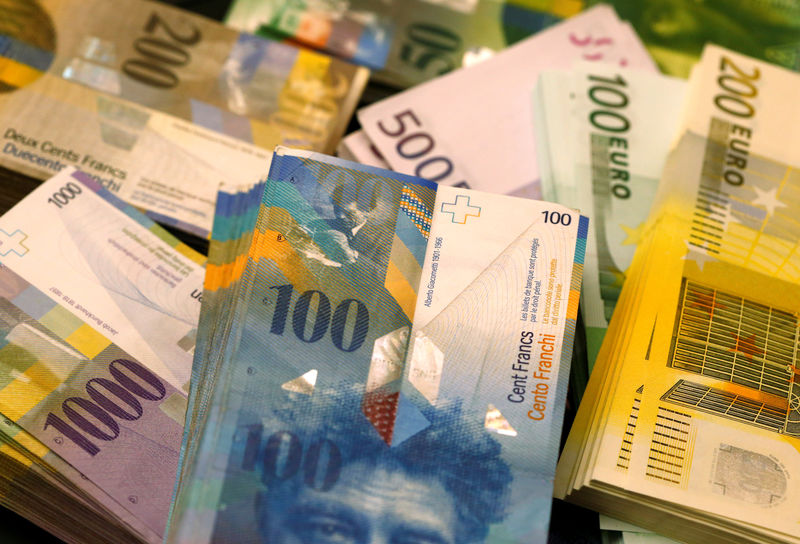By Masayuki Kitano
SINGAPORE (Reuters) - The Swiss franc eased versus the dollar on Thursday, but still held on to the bulk of hefty gains made the previous day as heightened tensions between the United States and North Korea sent investors looking for havens.
Against the greenback, the Swiss franc eased about 0.1 percent to 0.9645 per dollar
The Swiss franc had also risen more than 1 percent against the euro on Wednesday, recording one of its largest single-day jumps against the euro since the Swiss National Bank removed its cap on the Swiss franc in January 2015.
The Swiss franc last stood at 1.1332 per euro (EURCHF=R), down slightly on the day.
The yen also eased slightly against the dollar, losing some steam after having risen on Wednesday to its highest level in nearly eight weeks.
The dollar edged up about 0.1 percent to 110.16 yen
The Swiss and the yen are often sought in times of geopolitical tension partly because both countries have big current account surpluses. Japan is the world's biggest creditor nation and there is an assumption Japanese investors may repatriate their foreign holdings in times of heightened global uncertainty.
Concerns over geopolitical risks probably led investors to pare back bearish bets against the yen and the Swiss franc, said Satoshi Okagawa, senior global markets analyst for Sumitomo Mitsui Banking Corporation in Singapore.
"It looks like it was used as a good excuse to adjust positions," he said, referring to the heightened tensions between the United States and North Korea.
Such tensions remained high, with North Korea's state media saying on Thursday that North Korea will develop a plan by mid-August to launch intermediate-range missiles at the U.S. territory of Guam.
The unusually detailed report of an attack plan by North Korea's official KCNA news agency marked a further escalation in tensions between Pyongyang and Washington after U.S. President Donald Trump warned North Korea earlier this week it would face "fire and fury" if it threatened the United States.
Elsewhere, the New Zealand dollar jumped briefly after the Reserve Bank of New Zealand said on Thursday it still expected inflation to rise gradually as capacity pressures increase, thwarting some expectations it would strike a more dovish tone given recent soft economic data.
The RBNZ, which kept interest rates unchanged at record lows of 1.75 percent, also said a lower New Zealand dollar is needed to increase tradables inflation and help deliver more balanced growth.

The New Zealand dollar jumped to above $0.7370 after the release of the monetary policy statement. The kiwi later retraced some gains and last stood at $0.7350